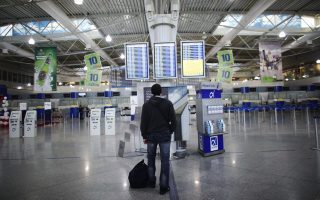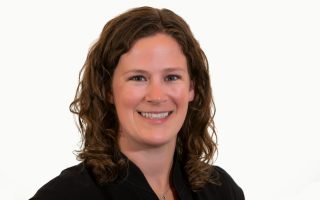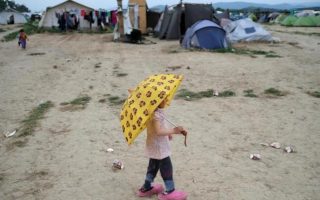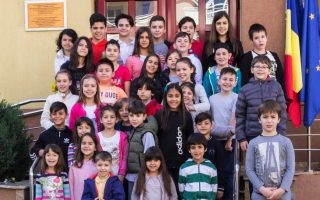Education helps combat social exclusion
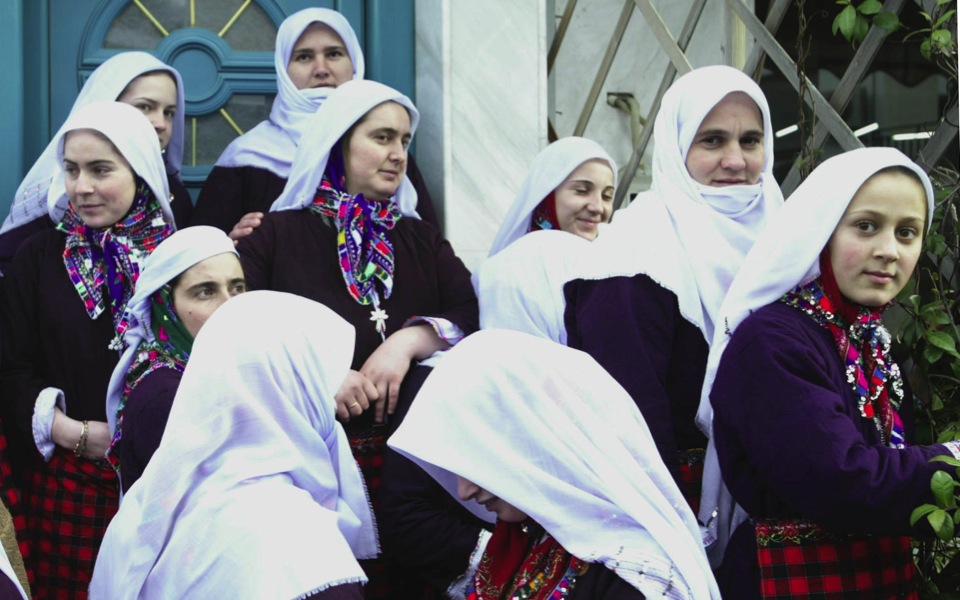
From 1936 to 1995, Pomaks living in Western Thrace, in the northeastern corner of Greece, were forced to return to their villages by sunset. That’s when barriers came down and those left on the outside had to provide explanations for spending the night outside the village borders.
Special identification and permission from the authorities were required in order for them to venture outside the village gates at night. There were no exceptions to the rule, whether it was people needing urgent medical attention, men going to work or women going to the nearest town to shop.
A sense of being second-class citizens and a desire for self-determination were evident in the Pomak villages that ended up inside the borders of what was then called the Kingdom of Greece following the signing of the Treaty of Lausanne in 1923. At the time, three ethnic groups living in the region, Pomaks, Turks and Roma, were defined as a single minority based on their common Muslim religion. Lessons at minority elementary schools are still taught in Turkish and Greek.
In November 1995, Gerasimos Arsenis, Greece’s minister of defense at the time, abolished the so-called “supervised zones,” which extended from mountainous Thrace to Epirus, and the barriers were removed. In May 1997, a team dispatched by the Ministry of Education made a trip to Thrace to record the needs and possibilities of an educational program for the Muslim minority’s children. Anna Frangoudaki and Thalia Dragona were on the team and later took scientific charge of the project, which was officially titled the Education Program for Muslim Minority Children. Today it is known as KESPEM, based on the initials of the program’s support centers, which provide Greek language lessons for adults, especially the minority’s women.
So far, within the program’s framework, scientific teams from nearly all of the country’s universities, as well as teachers who have penned junior and high school textbooks, have put together a multifaceted program addressed to teaching staff and the project’s associates. They have also opened dozens of extracurricular centers for Greek language and social integration courses as well as four mobile units that bring educational innovation to isolated minority villages. In addition, they have organized learning and leisure activities for children and teens of all backgrounds. Conferences and meetings with local authorities, teachers and deputies have also reinforced dialogue between the communities.
These efforts are also aimed at sweeping away social inequalities, which have had a negative effect on the Muslim minority’s education levels. These inequalities stem from religion, culture and, often, lack of Greek language skills, as well as politics, prejudice and stereotypes. One of the program’s major innovations was the emphasis placed on the education of teaching staff and their direct involvement in the changes they were recommending and subsequently implementing. Material designed for textbooks, for instance, was put to the test in classes by volunteer teachers prior to publication. According to Dragona, “it is the teachers and the program’s associates who taught thousands of minority children as well as adult members of the minority community – mainly pupils’ mothers – who made this project work.”
The venture’s success is reflected in the lively accounts of Pomaks Esra Molla and Serife Sirak. Born in Xanthi in 1989 and 1992, respectively, both were very young when the program began. Since finishing their training with the program, both women now live in Athens, where they work as teachers.
While Molla already holds a postgraduate degree, Sirak is currently working on hers.
The pair describe similar experiences, essentially summarized as difficulties regarding social inclusion, “within your own country, given that you never learn one language properly,” according to Molla. “We both attended a minority junior school before graduating from a Greek public high school. Fitting in at high school involved huge leaps forward as far as we were concerned. There were children who did not speak a work of Greek, or very little, and were unable to express themselves.”
In Sirak’s case, the opposite was true. “My mother tongues were Greek and Pomak [a Bulgarian dialect]. When I went to the minority school, I attended basic Turkish language classes, a completely unknown language to me.”
Language courses for women were developed following requests by pupils’ parents – mainly mothers. Emphasis was put on the everyday linguistic needs of women who required basic Greek, for example, to visit a doctor, do their shopping or communicate with people outside their village. In the end, the knowledge they acquired reinforced their confidence, allowing them to reclaim their position within their families and society in general.
Nurten got her driving license and was no longer “ashamed” of seeking employment. Seval talked about her interactions with others at hospitals and banks, for example, and the often rude way people spoke to her because of her headscarf, but, she noted that this behavior changed when she gained fluency in Greek.
Passport for education
We asked Sirak why parents opted to send their kids to minority schools.
“One of the reasons has to do with keeping the language alive,” she noted. “Another is that Turkey provided substantial assistance to those wishing to further their studies at Turkish universities through scholarships for minority children. In other words, Turkish became a kind of passport for further education for those who were willing and able. A third reason has to do with the simple fact that in certain villages the only school option was a minority school.”
When asked how it felt after having made all that effort, Sirak responded: “Doing the obvious can be very tiring. Speaking your mother tongue properly, not feeling different among fellow students, who ask you how come you’re not wearing a headscarf when they hear your name. We have friends who have changed their names to avoid answering questions about their ‘minority’ origins. There are plenty of tears and late nights. And when the time comes to teach, there’s the agony regarding the reaction of the kids’ parents. How will they react to me being a Muslim? What will they tell their children? The program was particularly helpful with regard to all of these issues.”
Molla, who teaches at a junior school in Nea Philadelphia, northern Athens, says she has implemented the program’s methods several times in class, with extremely positive results in terms of raising student interest. Is she planning to return to Thrace? Only to take part in the program addressed to the Muslim children and adults, she responds.
The Pomaks since 1923
Following the Treaty of Lausanne in 1923, the Christian minorities of Istanbul and the northeastern Aegean islands of Imvros and Tenedos and the Muslim minority of Thrace were exempt from the population exchanges between Greece and Turkey. Up to 1954 Greece recognized the minority as being Muslim, while barriers had been erected in order to distinguish villages which were under supervision. In the spring of 1954 Greece recognized the minority schools as being Turkish, as part of a broader policy against communist Bulgaria, within the framework of the Cold War. The Pomaks were considered to be a threat and possibly collaborating with Sofia and the Soviets. In this way, successive Greek governments took into account or followed the orders of the Allied forces which promoted a political Turkization of Pomaks, forcing them to speak Turkish through the minority schools. Following the Turkish invasion of Cyprus in 1974, Greece began separating the Pomaks from the rest of the minority, although this was not reflected on a practical level as far as the minority schools were concerned.

